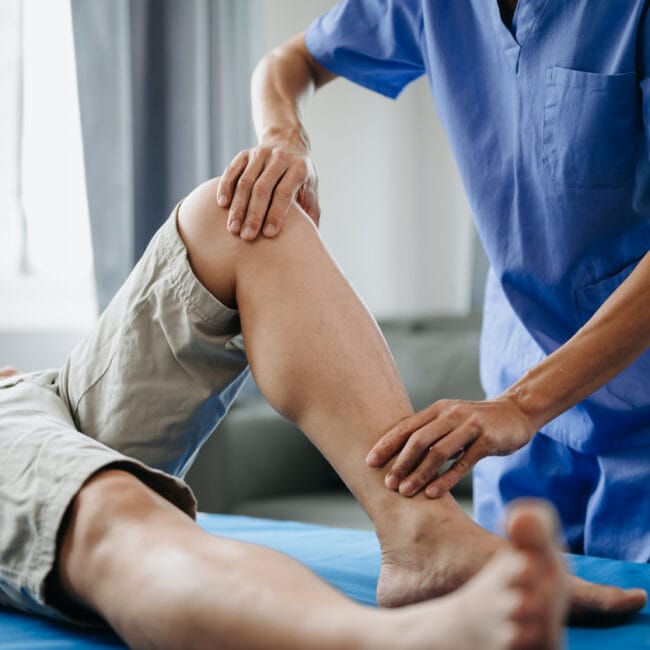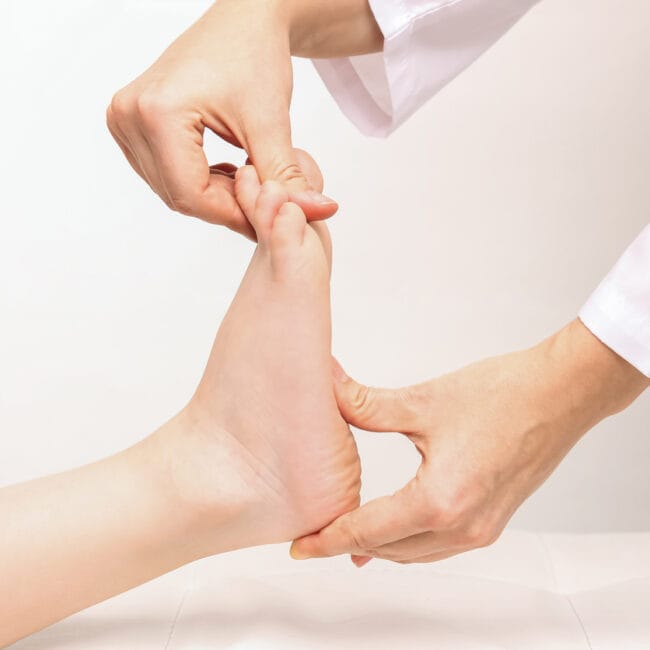
Running is a great way to keep fit and stay healthy. Unlike many other forms of exercise, you will always be able to run no matter when or where you are. But like all forms of exercise, running has certain risks associated with it. Below are some of the most common injuries linked to running.
Plantar Fasciitis
Plantar fasciitis is the swelling of the plantar fascia, which is the tendon that runs from our heels to our toes. This occurs in runners who do not warm up properly, allow the balls of their feet to hit the ground too hard when running, or whose shoes do not provide enough arch support.
Plantar fasciitis is one of the most common running injuries of all, and will affect over 10% of people at some point in their lives. The key indicator of plantar fasciitis is a stinging, stab-like pain when getting out of bed in the morning.
Achilles Tendonitis
The Achilles tendon connects your heels to your calves. If you begin to develop Achilles tendonitis, the pain will feel dull and stiff. If you keep training or running, the condition will gradually deteriorate and become a sharper, more stinging pain.
When your toes leave the ground, your Achilles tendon absorbs up to three times your actual body weight, so injuries can occur as a result of overly forceful or frequent steps. This means that Achilles tendonitis occurs most commonly in those who are practicing speed training or running uphill.
Patellofemoral Pain Syndrome
More commonly known as Runner’s Knee, Patellofemoral pain syndrome is a dull pain concentrated around the kneecap. It is one of the most common injuries suffered by runners, comprising about 16.5% of all running injuries.
There are two main theories as to the causes of runner’s knee. The first is that people with underdeveloped quads are at risk of developing the issue, so shifting some attention to those muscles is recommended. The second theory is that some runners, women in particular, allow their knees to bend inward as they run, which contorts the muscles. Monitoring your running technique could help you identify if this is a cause of pain, or a potential risk factor for your health.
Stress Fractures
Stress fractures can occur in runners who have started suddenly or started a more intense exercise regimen. While exercise does improve the strength of our bones, the process is much slower and must be properly handled, as the bones can actually become weaker when we start a new regimen.
Stress fractures can range in severity, with minor fractures requiring little-to-no attention, while major fractures could mean months in a cast. The most common cause of stress fractures is the impact of our feet on the ground when we run. To prevent this, it is crucial to have cushioning shoes with good shock absorption. The only other option is to stop running.
If you are interested in learning more about how we can treat your sports injury please click here.














